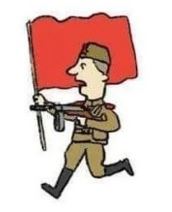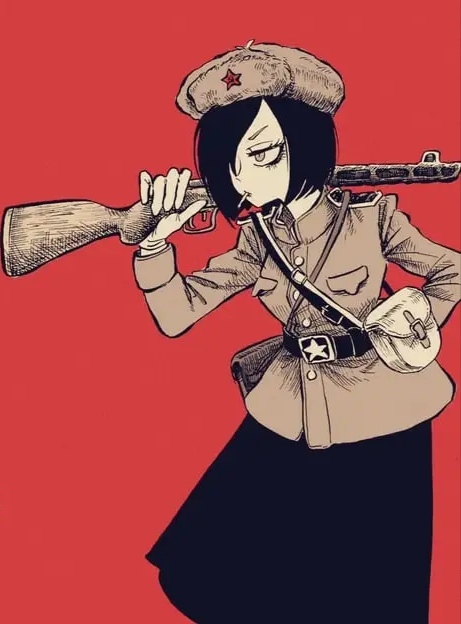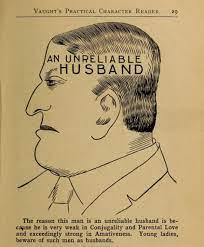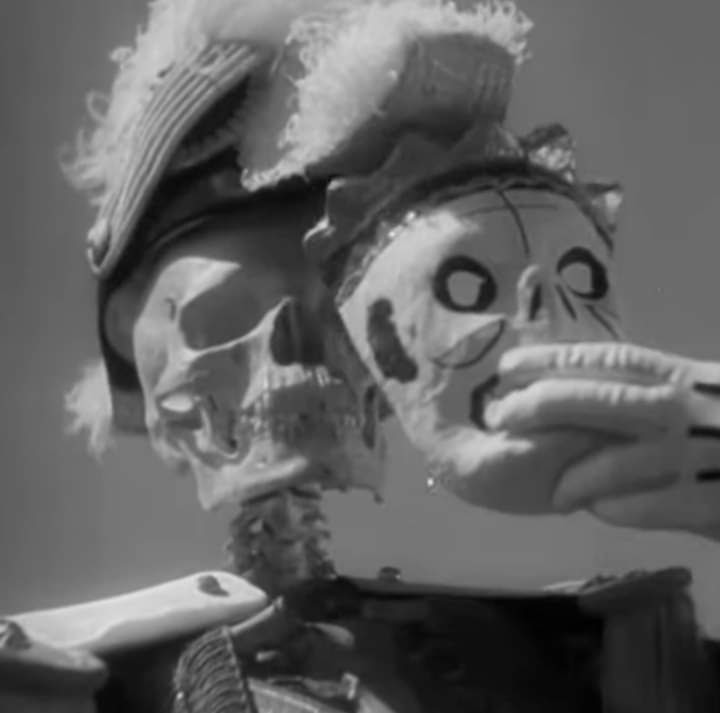I had to read the English translation since I cannot read or speak Mandarin unfortunately. Its a really good and engaging book imo, gets better with every page and supposedly loveecraft level shit goes down by the end.
In the beginning tho there are a few scenes describing the Cultural Revolution and struggle sessions.
Is it true that Einstein's theories of Relativity were frowned upon by red guard university students because they were seen as capitalist propaganda?
And is it true that some university lecturers were beaten to death during the struggle sessions? I mean cool if they deserved it (feudal landlords etc.) but the Relativity part seems a bit like the author making shit up.
Its funny how despite this the author is not even overtly rabidly critical of Marxism or Communism itself, unlike western authors who spend 10 pages to explain why "muh gommunism bad" every time such events get brought up. Liu seems to be critical of just the events which transpired during the cultural revolution.
You shouldn't pirate the book from z-library because its very unethical and a breach of IP, so you will be sent to hell when you die.
Its funny how despite this the author is not even overtly rabidly critical of Marxism or Communism itself
Why would he - Liu Cixin has been pretty tight lipped about his politics but some of them were gleaned in one interview:
According to a June 2019 interview and profile article by The New Yorker, Liu avoids talking about politics. In the same article, Liu argued that democracy was not appropriate for modern China, and individual liberty and freedom of governance is "not what Chinese people care about", adding "If you were to loosen up the country a bit, the consequences would be terrifying." He expressed support for policies such as the one-child policy and the Xinjiang re-education camps, saying "the government is helping their economy and trying to lift them out of poverty". The article reported that Liu had "become wary of touting the geopolitical underpinnings of his work".
These few statements alone in a single article were enough to motivate five republican senators to write an official letter to Netflix asking if they were aware of it and that they shouldn't proceed with the netflix adaptation of the trilogy (they ignored them with a canned response). So one can see how he'd be wary of expressing political opinions publicly.
Liu argued that democracy was not appropriate for modern China, and individual liberty and freedom of governance is “not what Chinese people care about”,
He expressed support for policies such as the one-child policy and the Xinjiang re-education camps, saying “the government is helping their economy and trying to lift them out of poverty
WHOA thank you for that interview link, a fantastic sci-fi writer and also dangerously based!!! :sicko-pog:
While that specific thing may not have happened, yeah, things got pretty bad during the CR. Have an acquaintance who's relatives were exiled to Mongolia at one point (they were a pro-Mao group that got caught by the factional backlash by the party.)
The initial trigger for the CR by Mao, limiting party control and turning things over to popular organisations was sound IMO. He should have known that the conservative elements of the party would react by co-opting other groups and declaring Mao's counter-revolutionary, and then he'd have to counter and things would spiral.
But that's easy with hindsight.
It’s easy to see with hindsight, but that’s good! It is critical to acknowledge and learn from mistakes to prevent repeating them.
Too often we blindly defend our predecessors for doing wrong, but in many ways we should be constructive - condemn the outcome but ultimately thank them for taking a risk that allowed us to learn and grow in strategy. Beyond that, when we do this we do not look like mouthpieces to the fencesitters and remove ammunition from the enemy.
Of all the revolutions I’ve been learning about, Cuba has perhaps applied this best.
they were a pro-Mao group that got caught by the factional backlash by the party.
I can't imagine the sheer chaos of having to live through something like that...
But that’s easy with hindsight.
Yep, and China stays winning against the anglosphere in the end
A good source...kind of doesn't exist. I'm very, very hesitant to recommend Yang Jisheng's The World Turned Upside Down since he imbibed some western brainworms after Tiennaman Square and he paints Mao as a villain of the piece, but I'm unaware of a better-sourced book in English by a Chinese author.
He was at least a journalist through the period and was a member of the party, so it's all..factual...there's just a lot of opinion there that just so happens to support the standard anti-communist western left narrative.
Good suggestions around that subject are the “100 day war” by William H. Hinton, Mobo Gao’s The Battle for China’s Past: Mao and the Cultural Revolution, , Cultural Revolution and Industrial Organization in China by Charles Bettelheim, Mao: A Reinterpretation (Lee Feigon)
In 1952, the Soviet Union launched a campaign to criticize Einstein and the theory of relativity, accusing Einstein of being "a An idealist through and through.” China followed “Big Brother” and published an article by Soviet Zhdanov in the People’s Daily in January 1953, accusing Einstein of relativism and agnosticism. Einstein’s worldview, his praise of human rights, democracy, and freedom, were all attacked, and he was considered a "reactionary", "democratic individualist" and "old democrat".
BTW, "The Three Body Problem" is a masterpiece.
BTW, “The Three Body Problem” is a masterpiece.
It really is. The whole trilogy was the freshest SF I read in a long time.
I've never seen a book consistently top itself from page to page like the third book did. Every time you're like "oh, I get it! Now I see what the book will be about", that thing happens in like 10 pages and the overall scope expands wildly
I'm curious if Einstein was a poorly selected example, or an ironically selected example, or perhaps there is more nuances to Einstein's beliefs once you dive deeper into subcategories of socialism.
I think this is why
The Marxist-Leninist view of matter, as existing independently of human observation/manipulation, was called into question by scientific discoveries in the 1920s which seemed to indicate that attempts to observe certain subatomic processes would inevitably affect the processes in question (Fara 2009). According to the Copenhagen interpretation of quantum phenomena, “...certain pairs of measurably physical properties, such as position and momentum [of electrons], are said to be incompatible with each other. Measurements of one will always uncontrollably disrupt the other” (Albert 1994: 60). The Austrian physicist, Erwin Schrödinger, proposed a famous thought experiment in which an unfortunate cat could be simultaneously dead and alive depending upon potential exposure to radioactive material.
Imagine shitting on a nice old man who accidentally made possible the destruction of the entire world.
Like, I don't know that much about Einstein but I thought he was a pretty boring socialist, politically.
Being critical of the cultural revolution is a fairly mainstream perspective in modern china. In interviews Liu has said that he is proud of china, the Xinjiang rumors are fake and china is doing poverty relief for the Uygyur people and other pro china stuff.
Libs and republicans hot mad and tried to get netflix to cancel his deal.
He is also not a fan of the cultural revolution as it negatively effected him and his family.
Being critical of the cultural revolution is a mainstream position in China. I don't know how accurate the specific events he discusses are.
Some of the big picture stuff Liu talks about is terrifying. Other stuff is kinda silly. E.g. Wait till you get to the part in book 2:
spoiler
where analogues for Donald Rumsfeld and Osama Bin Laden meet to discuss fighting the Three Body Aliens with suicide space ships
Overall, fun and thought provoking trilogy.
Cuz it's run by the people Mao was trying to purge from the party?
Western education indoctrinates you toward Absolut positions ... Therefore any nuance postition that is only describtive not "Morally Guiding" confuses us.. so actually what you describe is the most normal thing. Because you are soo used to the Lectures , you kinda expext them everywhere . If you want to have another one of those , you could watch "Crashlanding on you" - a Series that confused my western ass because it showed actually people living in NorthKorea and beeing pretty fine with it.. I realised there "Why am I suprised by this" , and this series still has a lot of Propaganda in it.. its just not "all have the same Hairstyle and are Mowed down by flak Cannons" kind of ridicules.
Great Book btw , but shit really gets going in "the Dark Forest" part of it.. First Time I experienced "Cosmic Horror" .
Therefore any nuance postition that is only describtive not “Morally Guiding” confuses them... Because you are soo used to the Lectures , you kinda expext them everywhere .
:this:
Its honestly such a breath of fresh air to read the works of a politically nuanced fiction author instead of the ideologically/morally charged rightist drivel that is so common in the west.
shit really gets going in “the Dark Forest” part of it… First Time I experienced “Cosmic Horror” .
:this: much more so than Lovecraft imo
Its a Story about how the bigges badest ,most honorable Superchad is a Loyal North Korean Border Guard...
https://www.youtube.com/watch?v=yaVHZ_4uL4s&list=RDMM&index=4
No idea if it is relevant but avoiding spoilers but the story takes a very pessimistic view on philosophy stuff that inclines me to believe he belives that.
Probably true, though. I used to have some unbiased sources saved for this but I lost them. However during a difficult and stressful time it is easy to imagine people taking things to far. And also it is easy to picture annoying liberals doing their best to make pointless trouble. Which is what I recall is exactly how he cast that part.
I have been thinking of going back and finishing the trilogy but I haven't quite felt up to it yet.
Which is what I recall is exactly how he cast that part.
Yeah compared to western writers he was very objective and factual even when writing about someone who suffered from the cultural revolution in the third person.
I noticed how it later talked about colonialism and genocide in a way that I haven't really seen in western media.
Regarding the Cultural revolution it was largely a failure but there were good things and reading/nuance goes beyond just “Mao's motivations” or students bullying teachers . Even if the CR aimed at a path opposing the path China actualy took (which as a critical supporter of modern china i must say that it probably ended up being the correct one) .
The focus on the modern western liberal narrative and even left's understanding is on Mao and the violence of the “red guards” but that is to ignore at the beginning CR , while things were far from the chaos and mistakes that errupted later on , bureaucrats and leading party members like Liu Shaoqi and even Deng wanted to turn the CR into a wider Anti-leftist Campaign and sent their people to the provinces to crush "ultra left" dissidents in the name of the CR. The first actualy hard stance and leading involvement of Mao in the whole deal was to support the students opposing them, which was where “Bombard The Headquarters” came from, and that (at the very least “both-sides”) conflict was whats turned the CR as a radical mass and mess of a movement (1966-1968) began. The political violence of the Cultural Revolution was oversimplified in the mainstream histories and popular media, even ones coming out of China like the one you mention.
More specificaly, the first phase of the Cultural Revolution, also the most brutal in terms of number of deaths divided by number of days, was under the direct control of mainly Liu Shaoqi and Deng Xiaoping, who used it to “purge down”, i.e. killing all kinds of dissidents from “questionable” families. Mao was justifiedd in supporting the rebels (or left Red Guards) to “bombard the headquarters” and “purge up” instead, i.e. targeting the capitalist roaders in the ruling class in theory. In practice there were massive excesses and chaos and the complete decentralization of the movement meant a lot of groups acted way different;y, even yes purging and killing professors or destroying historical artifacts. But as a whole arguably the most oppressed group of people of the entire period were the rebels, the sincere Maoists, who lost power after 1968 and only rose to prominence again intermittently, mainly with the support of Mao. They suffered deaths and persecution first during the “Liu-Deng Cultural Revolution”, then during the “order-restoring purges” of 1968-1969, and again under Hua Guofeng and Deng Xiaoping during the “Gang of Four trial”. You can and should argue about the probability that China is now better for it but historicaly that is the truth
Even Maurice Meisner, generally critical of Mao, wondered why in popular discourse it’s all about “young Red Guards beating up disgraced officials and intellectuals”, while in fact most deaths of that period were young Red Guards being slaughtered by local conservative officials after the decline of mass movement at the end of 1968 and at the start of its rise. So the BAD that happened during it (and there was a lot) were far from just “Ultra Maoist theory and practice gone wrong” or deserved to be blamed on Mao and the red guards nearly as much as it is even in leftist spaces. So im being 50-50 on it because of the totally wrapped idea and history of why it was bad and who did what. It wasnt allowed to succeed or fail in its own merrits and in practice was largely a failure because it was massively supressed and made magnitudes worse by the opposing faction even if you can certainly argue that if it went as planned that China would be in a worse position today
In general the idea of a second revolution within the state is something every leftist should consider in terms of what comes next, especialy in states and countries that have internalized capitalist and bourgois hegemony, tendencies and mindset for so long…Even in China’s case the example of a tendency toawrds petit bourgeois, and that the restoration of capitalism leading to the CR began in the countryside with the household responsibility system not introduced o, which went smoothly because it’s popular, popular because it satisfied the peasant’ ingrained by centuries desire to be private, autonomous producer on his own land and not as a collective and workers community. Mao himself was aware of this, and one of the most frequently used quote in the CR was Lenin on “small producers everyday reproducing capitalist relations”
To counterbalance the violence from both sides which i have posted about thus far, some general positives that happened during it were the promotion of egalitarian spirit against the revisionist’s USSR model of clearly defined and explicitly unequal income and power distribution between different levels of bureaucrats and employees, a surge of Industrial democracy and people’s rule in factories ,attempts at overcoming division of labor as an obstacle to socialism, theory of permanent revolution under and within the dictatorship of proletariat ,export of revolution: many insurgencies still going strong (Naxalites and NPA)
But beyond the chaos after it balooned up into large scale confrontation of big party and leftist factions it mainly failed because Objective material conditions: Chinese overwhelmingly peasants (having to go through and form local capitalist units of production with Dengs “chinese dream” policies which in retrospect you can argue succeeded ), older ages “tired” of constant revolutionary vigor, big changes and lack of stability and normality during Mao’s rule ,some his fault some dont
Its not like an antirevolutionary take tbh, plus it means that Obama's intern was able to read three pages and go "ah yes this is clearly an anti-china text" and put it on his reading list, which I think had a fairly big impact on it gaining momentum in the anglosphere.
The ideological pressure to ensure all academic inquiry conformed with Marxism intensified after the Hundred Flowers Campaign in 1957, wherein those who voiced liberal or western ideas risked being denounced as 'rightists' and sentenced to up to 20 years hard labour.
Very based :mao-clap:
Historian Jonathan Fenby uses the analogy of witchhunts in late medieval Europe to understand the early Cultural Revolution...
When looking for "le bad" to compare "gommunism" to, Historian Jonathan Fenby apparently hasn't heard of the very modern Red Scare/McCarthyism, the White Terror, or the ongoing 2020s yellow peril lol
I just finished this book myself and I am really psyched for starting The Dark Forest this weekend. Supposedly things will get even more crazy there.
Yeah, I really liked The Dark Forest. I'm reading Death's End right now.







